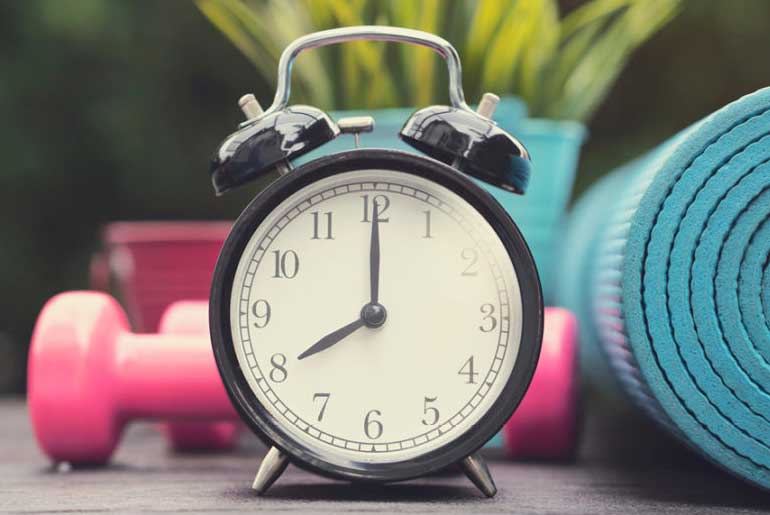The best time to work out for maximum benefits may vary depending on individual preferences and schedules, but there are general considerations. Many experts suggest that morning workouts offer advantages such as increased metabolism, improved mood throughout the day, and consistency in establishing a routine. Morning exercise can also enhance focus and energy levels. However, the most crucial factor is choosing a time that aligns with personal preferences and allows for consistency. Consistent exercise, regardless of the time of day, is key to reaping the maximum benefits of improved cardiovascular health, weight management, and overall well-being. Ultimately, the best time to work out is the time that makes it feasible to maintain a regular exercise routine.
The timing of your workout can indeed have an impact on your fitness, and it’s fascinating how different times of the day offer unique advantages and challenges. Here’s a closer look at the considerations for morning, afternoon, and evening workouts:
Morning Workouts:
Pros:
- Metabolism Boost: Morning exercise can jumpstart your metabolism, potentially leading to increased calorie burn throughout the day.
- Positive Mindset: It releases endorphins, promoting a positive mindset and improved focus for the rest of the day.
- Consistent Routine: Establishing a consistent morning routine can reduce the likelihood of scheduling conflicts later in the day.
Cons:
- Muscle Warm-Up: It may take longer for your muscles to warm up in the morning, increasing the risk of injury if not properly warmed up.
- Time Constraints: For those with busy morning schedules, finding time for a workout can be challenging.
Afternoon Workouts:
Pros:
- Peak Performance: Body temperature and muscle function tend to peak in the afternoon, potentially enhancing performance and reducing injury risk.
- Social Opportunities: Afternoon workouts can be more social, allowing you to exercise with friends or participate in group classes.
Cons:
- Crowded Gyms: Popular after-work hours may lead to crowded gyms, limiting equipment availability and potentially affecting the overall workout experience.
- Workday Stress: Afternoon workouts may be affected by stress accumulated throughout the workday, making it challenging for some individuals to find motivation.
Evening Workouts:
Pros:
- Stress Relief: Evening workouts can serve as a stress-relieving activity, helping individuals unwind after a long day.
- Increased Performance: Body temperature and muscle function continue to increase in the evening, potentially leading to better workout performance.
Cons:
- Sleep Impact: Intense workouts close to bedtime may affect sleep quality for some individuals, as exercise raises adrenaline levels.
- Fatigue and Commitments: Evening commitments or fatigue from the day may make it challenging to consistently engage in evening workouts.
Chronotype and Fitness:
- People have different chronotypes, reflecting natural preferences for waking and sleeping.
- Morning chronotypes may find morning workouts more suitable, while evening chronotypes may prefer later in the day.
- Tailoring workout times to your chronotype can optimize performance and adherence.
In conclusion, the best time to work out is highly individual. It’s essential to consider personal preferences, daily schedules, and how your body responds to exercise at different times. Consistency and finding a time that fits into your lifestyle are key factors in achieving long-term fitness goals.
Disclaimer:
The information contained in this article is for educational and informational purposes only and is not intended as a health advice. We would ask you to consult a qualified professional or medical expert to gain additional knowledge before you choose to consume any product or perform any exercise.







